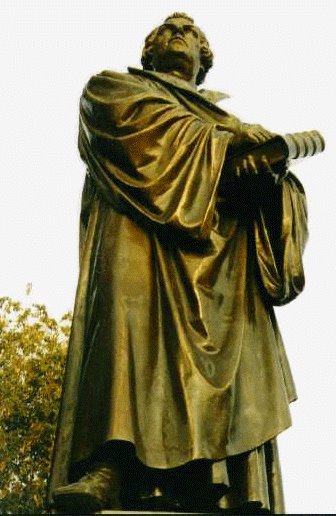03 July 2006
Take Eat, Take Drink
Take Eat, Take Drink
The Lord’s Supper Through the Centuries
Ernest Bartels
CPH, 2004
ISBN 0758600372
286 pages, including answer key
 How has it happened that four little words, “This is My body,” have been so variously interpreted, resulting in such a myriad of applications and beliefs?
How has it happened that four little words, “This is My body,” have been so variously interpreted, resulting in such a myriad of applications and beliefs?
What is the doctrine and practice of the Lord’s Supper? From the Upper Room to its present-day setting on various altars, Ernest Bartels unravels the history behind this Sacrament, the various practices now in evidence and the doctrines which have resulted. Bartels presents a historical roadmap any novice can follow with ease, yet he is unflinchingly faithful to his own confession along the route. His markers are clear and obvious. Along the way the reader is able to understand where the various actors in history that shape the modern worship wars “fit.” Who was Luther? Zwingli? Bucer? Calvin? Did they affect any current denominations? How? Bartels makes the issue clear. Digging deeper, Bartels opens the history of terms like “closed” versus “close” communion. He also looks behind the issue of using individual cups over the common cup not only among Lutherans, but also among other denominations.
This book is written in a deceptively simple style. By that I mean this: The depth of Bartels’ insights and weight of his knowledge are revealed precisely by the fact that he could write in a manner that is accessible to a wide audience, much like Luther’s Small Catechism. This is a book that could be the source of much study and catechetical discussion in a congregation, especially one interested in the history of the early councils of the church. Bartels brings the reader full circle, uniting the present with the past as una sancta:
We have only the words of our Lord for our Christian life for our salvation. They are enough. Jesus said, “Heaven and earth will pass away, but My words will not pass away” (Matthew 24:35). Christ’s words endure forever. That was certain for the early church and it is certain today.
Bartels, a native of Tecumseh, Nebraska, graduated from Concordia Theological Seminary in Springfield, Illinois. He served congregations in Wisconsin and North Dakota. He held several advanced degrees and wrote numerous articles for publication.
Also posted at Quicunque vult…
The Lord’s Supper Through the Centuries
Ernest Bartels
CPH, 2004
ISBN 0758600372
286 pages, including answer key
 How has it happened that four little words, “This is My body,” have been so variously interpreted, resulting in such a myriad of applications and beliefs?
How has it happened that four little words, “This is My body,” have been so variously interpreted, resulting in such a myriad of applications and beliefs?What is the doctrine and practice of the Lord’s Supper? From the Upper Room to its present-day setting on various altars, Ernest Bartels unravels the history behind this Sacrament, the various practices now in evidence and the doctrines which have resulted. Bartels presents a historical roadmap any novice can follow with ease, yet he is unflinchingly faithful to his own confession along the route. His markers are clear and obvious. Along the way the reader is able to understand where the various actors in history that shape the modern worship wars “fit.” Who was Luther? Zwingli? Bucer? Calvin? Did they affect any current denominations? How? Bartels makes the issue clear. Digging deeper, Bartels opens the history of terms like “closed” versus “close” communion. He also looks behind the issue of using individual cups over the common cup not only among Lutherans, but also among other denominations.
This book is written in a deceptively simple style. By that I mean this: The depth of Bartels’ insights and weight of his knowledge are revealed precisely by the fact that he could write in a manner that is accessible to a wide audience, much like Luther’s Small Catechism. This is a book that could be the source of much study and catechetical discussion in a congregation, especially one interested in the history of the early councils of the church. Bartels brings the reader full circle, uniting the present with the past as una sancta:
We have only the words of our Lord for our Christian life for our salvation. They are enough. Jesus said, “Heaven and earth will pass away, but My words will not pass away” (Matthew 24:35). Christ’s words endure forever. That was certain for the early church and it is certain today.
Bartels, a native of Tecumseh, Nebraska, graduated from Concordia Theological Seminary in Springfield, Illinois. He served congregations in Wisconsin and North Dakota. He held several advanced degrees and wrote numerous articles for publication.
Also posted at Quicunque vult…

